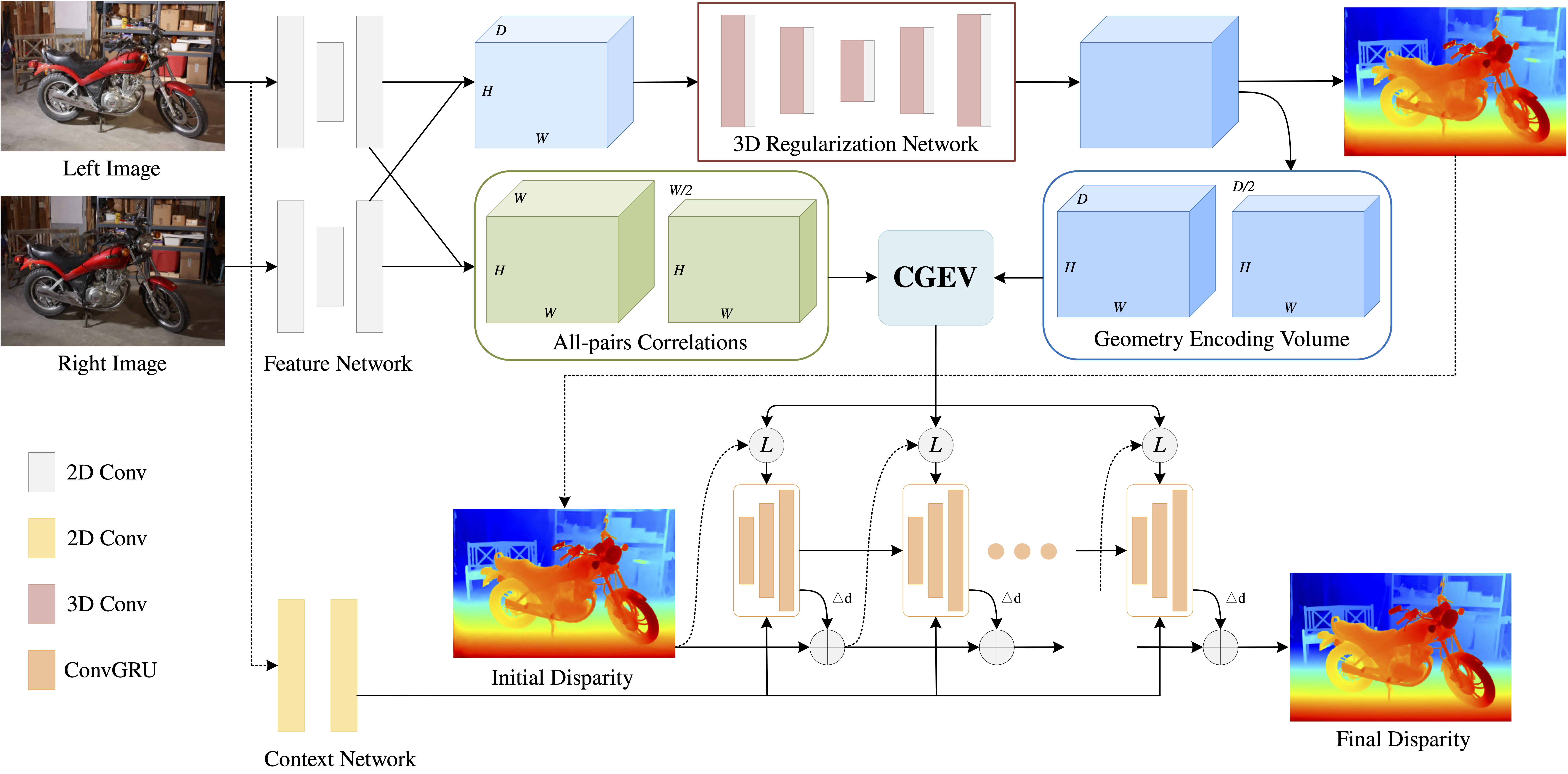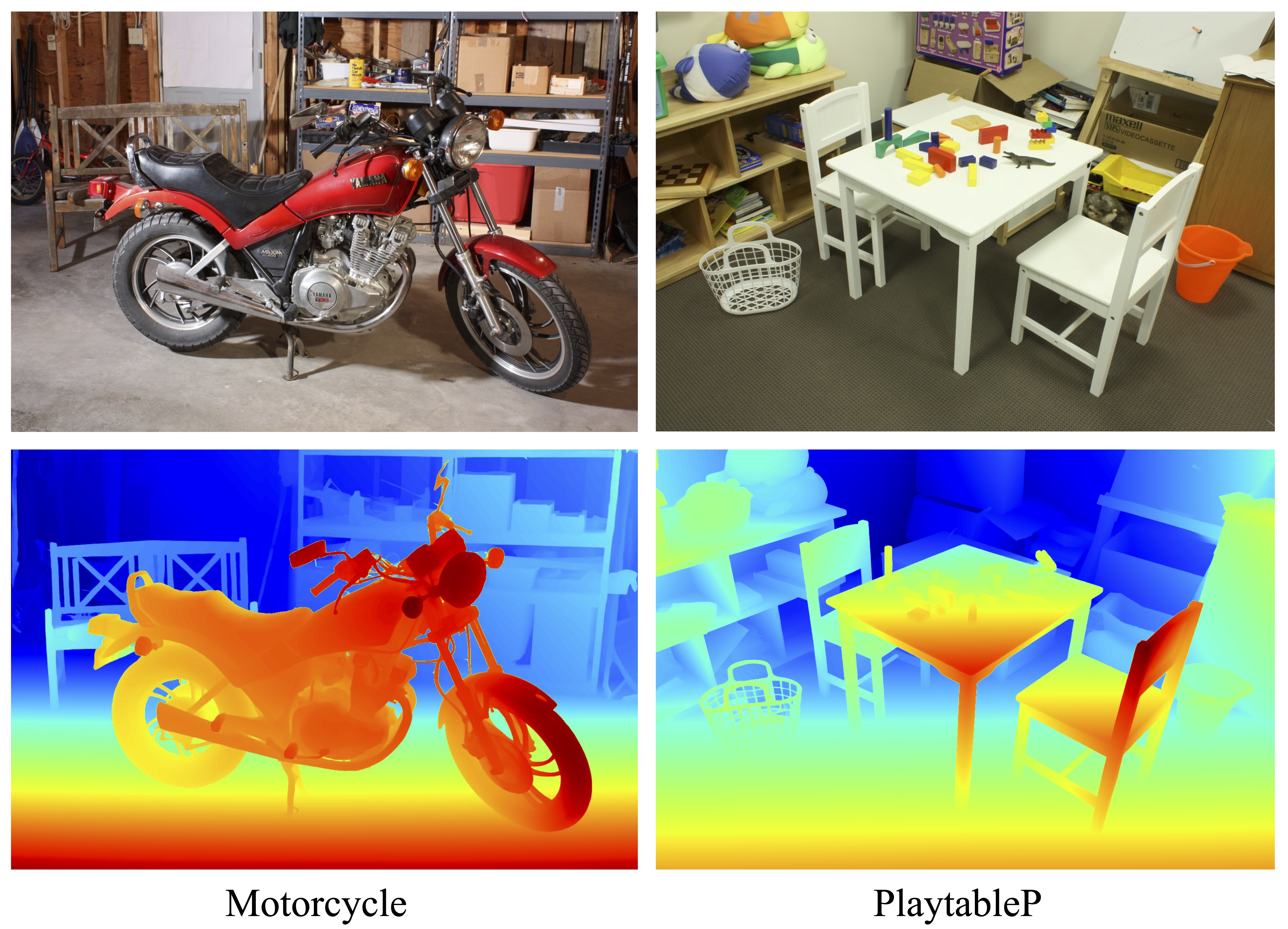3.1 KiB
IGEV-Stereo & IGEV-MVS
The IGEV-MVS is coming soon.
This repository contains the source code for our paper:
Iterative Geometry Encoding Volume for Stereo Matching
CVPR 2023
Gangwei Xu, Xianqi Wang, Xiaohuan Ding, Xin Yang

Demos
Pretrained models can be downloaded from google drive
You can demo a trained model on pairs of images. To predict stereo for Middlebury, run
python demo.py --restore_ckpt ./pretrained_models/sceneflow/sceneflow.pth

Environment
- NVIDIA RTX 3090
- Python 3.8
- Pytorch 1.12
Create a virtual environment and activate it.
conda create -n IGEV_Stereo python=3.8
conda activate IGEV_Stereo
Dependencies
conda install pytorch torchvision torchaudio cudatoolkit=11.3 -c pytorch -c nvidia
pip install opencv-python
pip install scikit-image
pip install tensorboard
pip install matplotlib
pip install tqdm
pip install timm==0.5.4
Required Data
To evaluate/train IGEV-Stereo, you will need to download the required datasets.
By default stereo_datasets.py will search for the datasets in these locations.
├── /data
├── sceneflow
├── frames_finalpass
├── disparity
├── KITTI
├── KITTI_2012
├── training
├── testing
├── vkitti
├── KITTI_2015
├── training
├── testing
├── vkitti
├── Middlebury
├── trainingH
├── trainingH_GT
├── ETH3D
├── two_view_training
├── two_view_training_gt
Evaluation
To evaluate a trained model on a test set (e.g. Scene Flow), run
python evaluate_stereo.py --restore_ckpt ./pretrained_models/sceneflow/sceneflow.pth --dataset sceneflow
Training
To train on Scene Flow, run
python train_stereo.py
To train on KITTI, run
python train_stereo.py --restore_ckpt ./pretrained_models/sceneflow/sceneflow.pth --dataset kitti
Submission
For submission to the KITTI benchmark, run
python save_disp.py
Citation
If you find our work useful in your research, please consider citing our paper:
@article{xu2023iterative,
title={Iterative Geometry Encoding Volume for Stereo Matching},
author={Xu, Gangwei and Wang, Xianqi and Ding, Xiaohuan and Yang, Xin},
journal={arXiv preprint arXiv:2303.06615},
year={2023}
}
Acknowledgements
This project is heavily based on RAFT-Stereo, We thank the original authors for their excellent work.